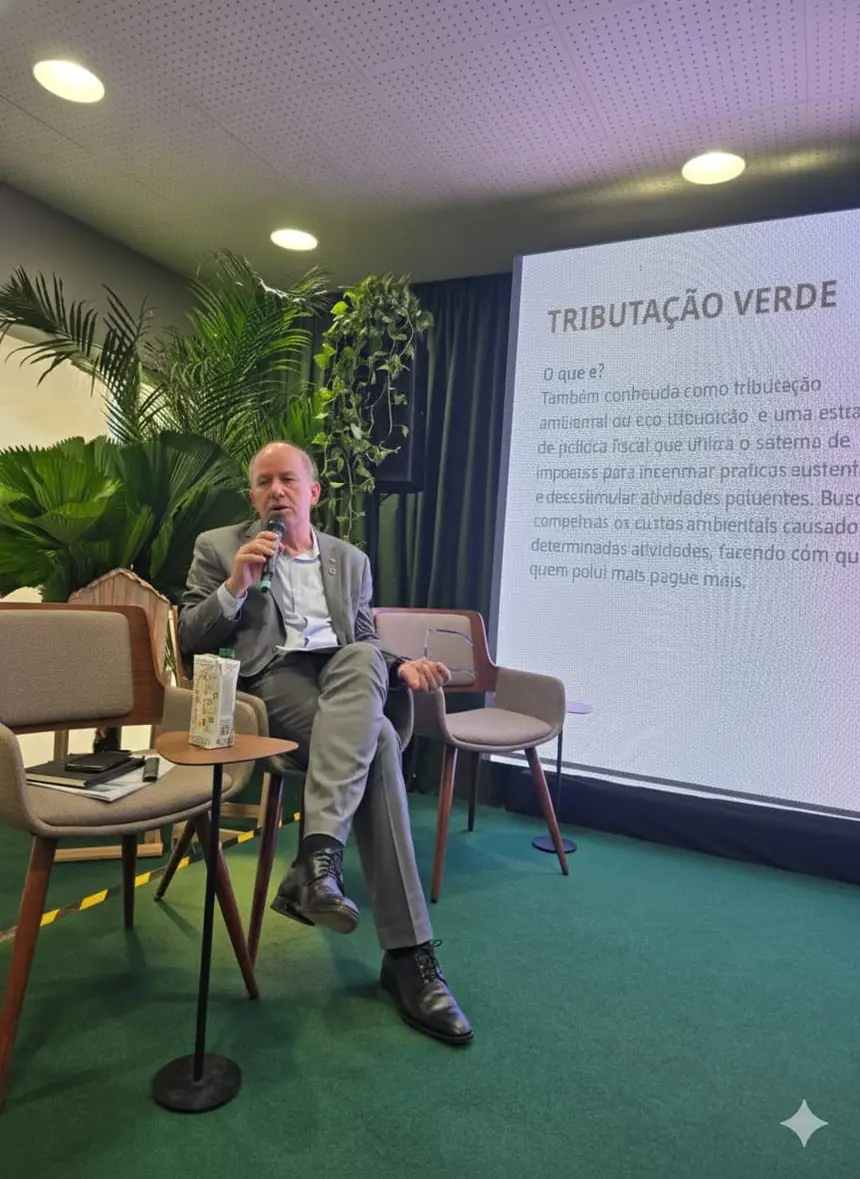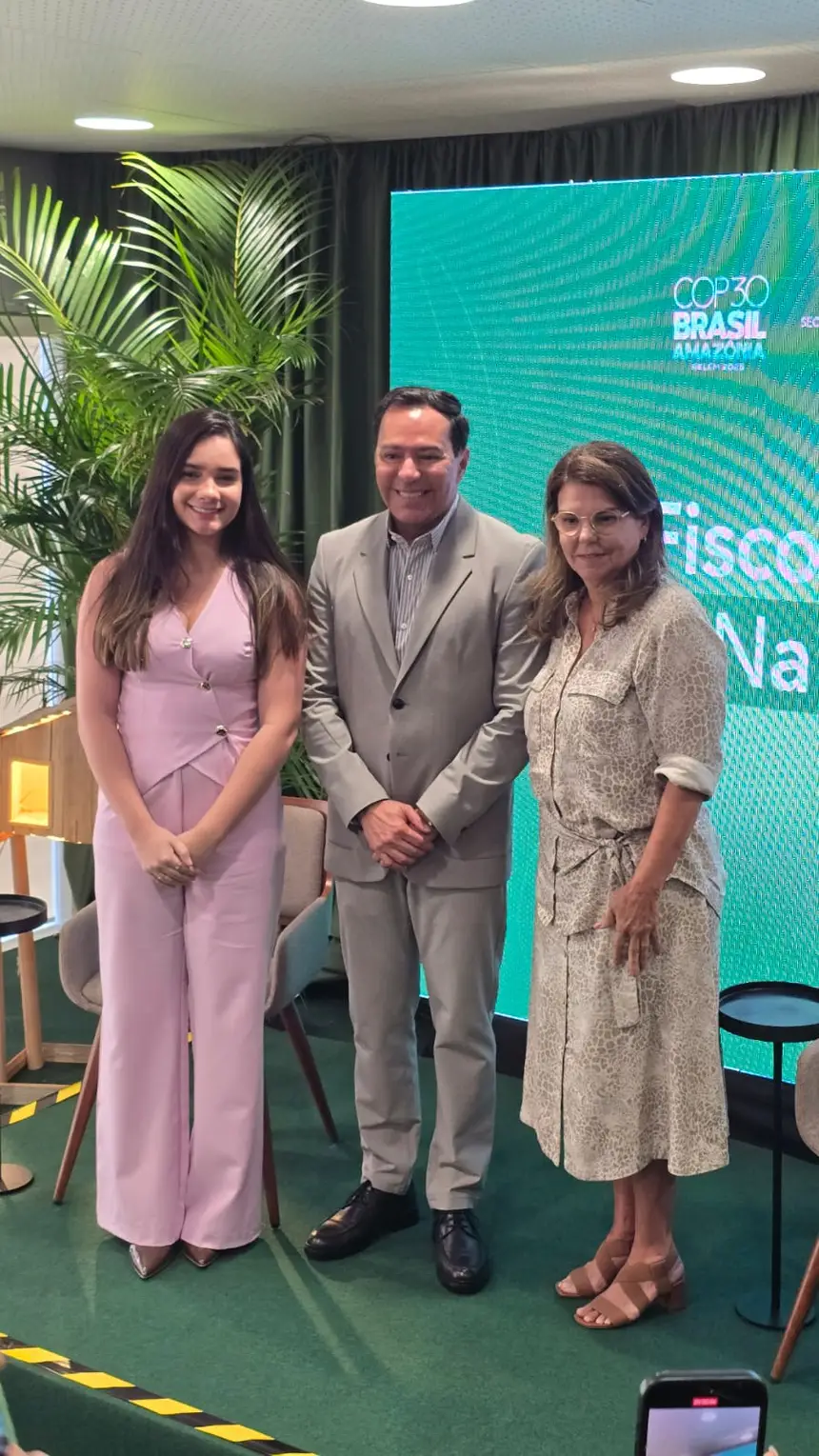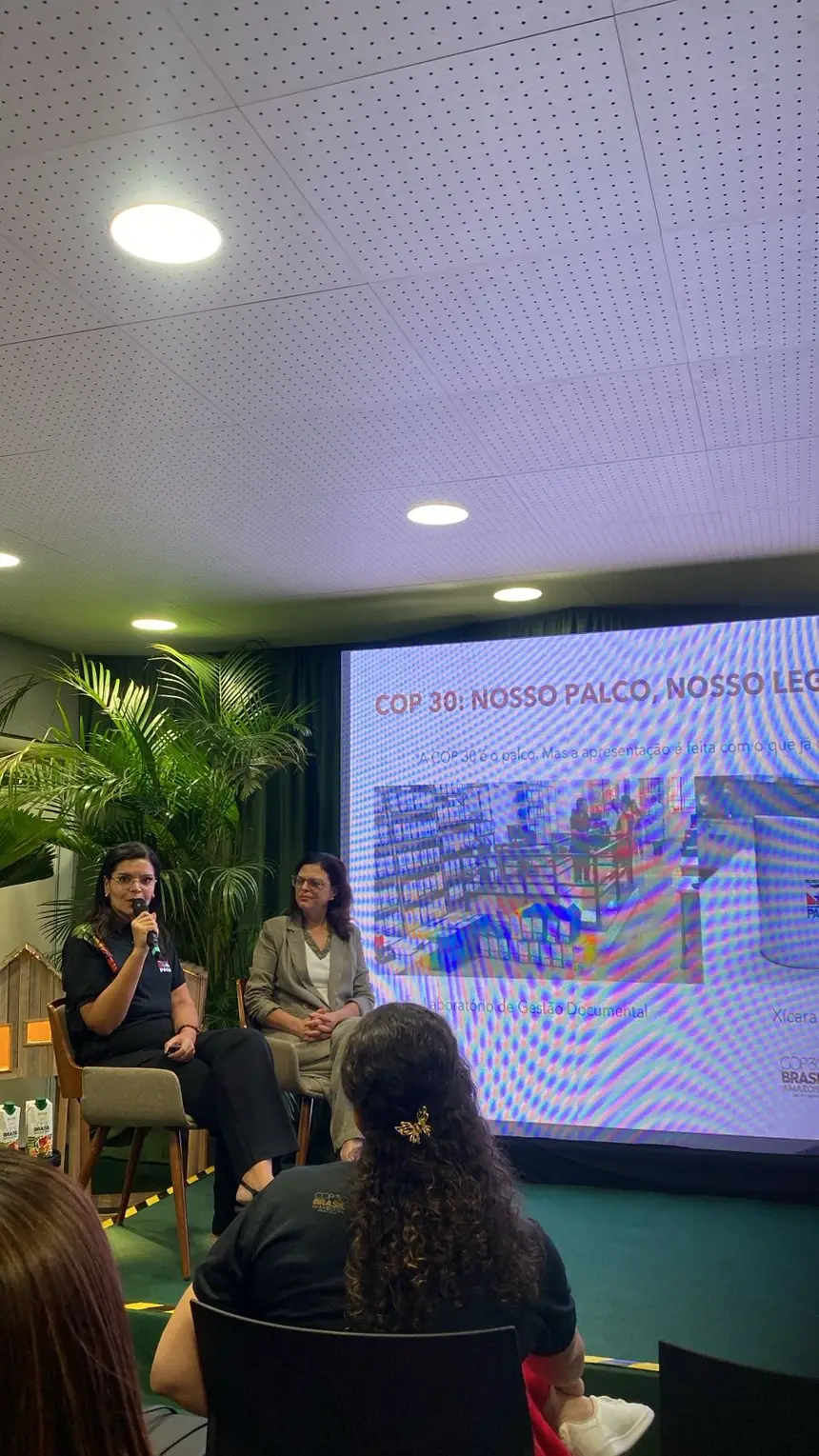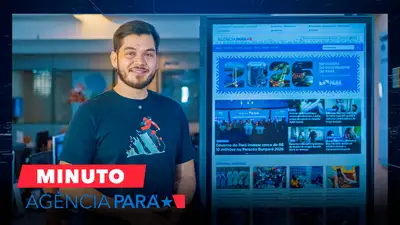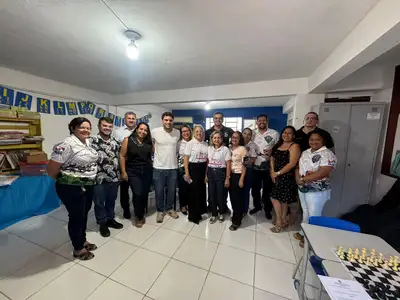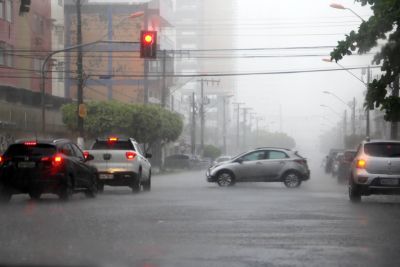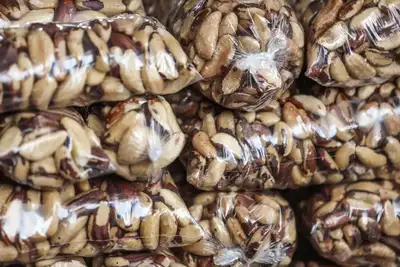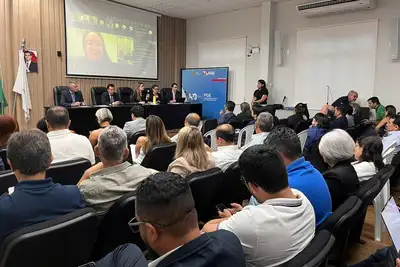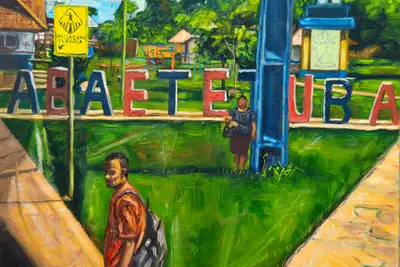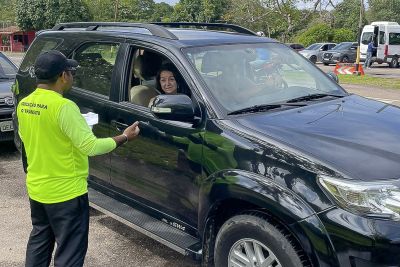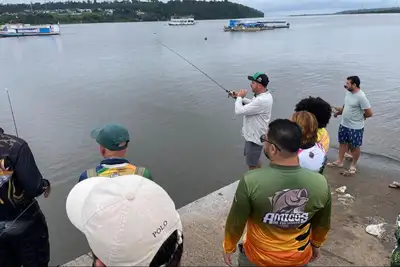Sefa Pará presents ICMS Verde at COP30
Tax Education was also a topic of the panel
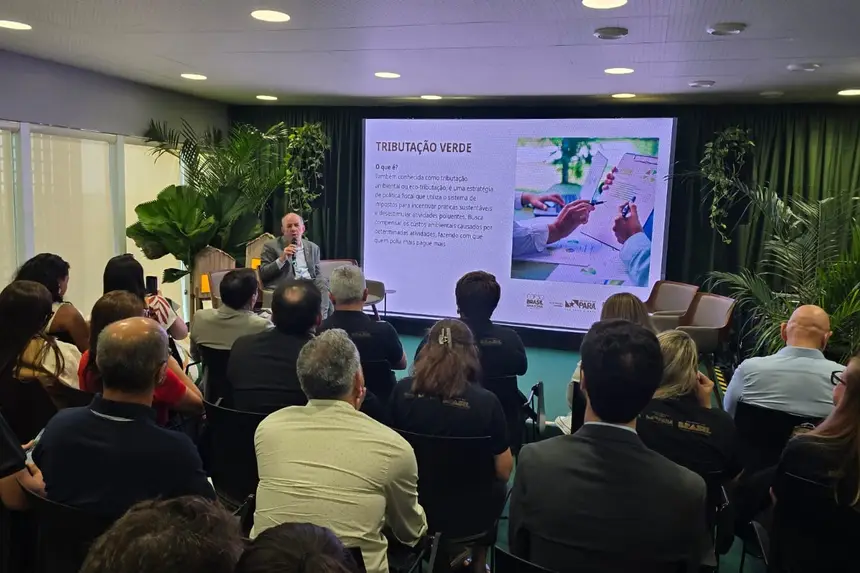
The State Department of Finance of Pará (Sefa) is participating in the programming of the 30th United Nations Conference on Climate Change (COP30), held in Belém, with a series of panels focused on fiscal sustainability, citizen education, and innovation in public management. The presentations take place in the Green Zone, at the Pará Pavilion, and reinforce the state government's commitment to sustainable development and fiscal justice.
According to the head of Sefa, René Sousa Júnior, the actions of the state finance department are aligned with Pará's sustainability policy. "The presentations highlight innovation and the connection between fiscal management and sustainability. We operate from tax policy strategies that stimulate and protect nature to tax education, which involves the population in exercising citizenship," said the secretary.
Green taxation and sustainable development
During the panel "Green Taxation and Socioeconomic Development", René Sousa Júnior presented the state's strategies to encourage environmental preservation through eco-taxation — a fiscal policy that uses the tax system to stimulate sustainable practices and discourage polluting activities. Among the mechanisms adopted are tax incentives for companies that use clean technologies, responsible forest management, and reforestation projects.
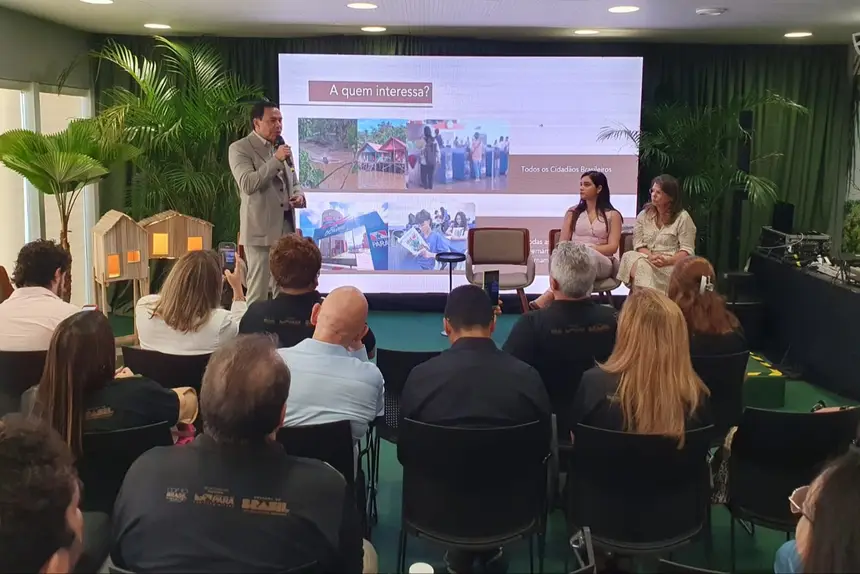
The secretary also highlighted the ICMS Verde, implemented in Pará since 2012, as a tool to encourage environmental preservation without harming municipal revenues. The ecological criterion represents 8% of the ICMS share, calculated by the State Department of Environment and Sustainability (Semas). "With this policy, we promote sustainable development and improve the quality of life of the population," he emphasized.
Taxation and citizenship in the Amazon
Another panel, held this Sunday (10), addressed the theme "Taxation and Citizenship in the Amazon", focusing on the actions of the State Tax Education Program, developed by Sefa in schools, communities, and the Peace Factories.
The Undersecretary of Tax Administration, Eli Sòsinho, highlighted the importance of social participation. "The tax system, when understood and monitored by society, can become an instrument for forest protection, valuing local knowledge, and strengthening sustainable public policies," he stated.
The coordinator of the State Tax Education Program, Zilda Benjamin, presented the experience of implementing the State Network of Education and Citizenship, which seeks to expand tax education actions in municipalities.
The Deputy General Controller of Internal Control of CGE-PA, Ana Paula Pinto, also participated in the panel, reinforcing the relevance of transparency. "Access to information is a strategic tool of public management. The Citizen Information Service (SIC) is the channel that guarantees this dialogue with the population and promotes social justice," she highlighted.
Sustainability in public management
The theme "Sustainable Transformation in the Public Management of Sefa/PA" was presented by civil servant Ana Paula Carvalho Azevedo, from the Administration Directorate of Sefa, and by the chief prosecutor of the National Prosecutor's Office for Climate and Environmental Defense, Teresa Villac. They highlighted actions that strengthen environmental, social, and governance (ESG) principles in public administration.
Among the initiatives are the elimination of paper use, a 30% reduction in disposable consumption, adherence to the Racial and Gender Equity Pact — in partnership with TCE, Fasepa, and Fábrica Esperança — and the integration of ESG criteria into the Institutional Risk Matrix and the Planning of Contracts. "These measures strengthen a culture of decision-making based on social responsibility, efficiency, and public ethics," said Ana Paula Azevedo.
New panels and projects
On November 17, Sefa will present the panel "Environmental Asset of Integral Protection in the Brazilian Amazon", led by Secretary René Sousa Júnior and senior associate of Global Brazil in Nature Finance, Gustavo Martins. The project, developed by the Interstate Consortium of the Legal Amazon (CAL), seeks to create financing mechanisms that value the environmental assets of Integral Protection Conservation Units, transforming preservation into an economically advantageous activity.
On the same day, the theme "Funcacau: Financing the Sustainable Future of Cocoa Culture" will be addressed by tax auditor Augusto Miranda and agronomist Fernando Teixeira Mendes, from Ceplac. The panel highlights the potential of the Pará cocoa production chain — national leader in production — as a vector of the Amazonian bioeconomy, reconciling income generation, environmental conservation, and social inclusion.
Equity and tax reform
The coordinator of the Tax School, Cristina Viana, will present on November 20, at 4 PM, the theme "Pro-Equity Racial Pact", at the stand of the Court of Accounts System, in the Green Zone, showcasing Sefa's actions in partnership with the State Court of Accounts (TCE-PA).
Still within COP30, between November 17 and 21, Sefa will participate in the programming of the Pará-Municipal Pavilion, with two lectures aimed at public managers and municipal technicians.
The first, "Impacts of Tax Reform on States and Municipalities", will be presented on November 18, at 4 PM, and will discuss the effects of Constitutional Amendment No. 132/2023 and Complementary Law No. 214/2025 on the federative pact and the new taxation model with the Tax on Goods and Services (IBS).
On November 20, also at 4 PM, the theme "Impacts of Consumption Tax Reform on State and Municipal Finances" will be debated, analyzing the changes resulting from the replacement of ICMS and ISS by IBS and its reflections on the financial autonomy of municipalities.


